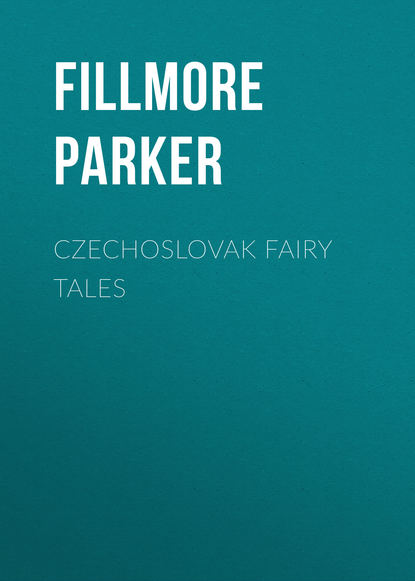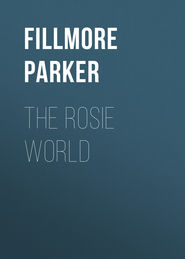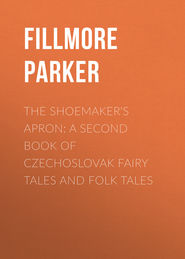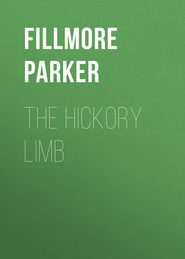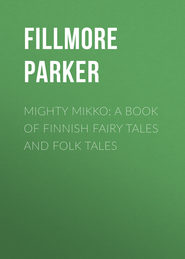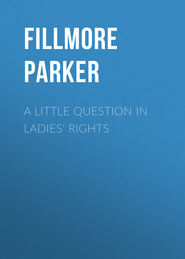По всем вопросам обращайтесь на: info@litportal.ru
(©) 2003-2024.
✖
Czechoslovak Fairy Tales
Настройки чтения
Размер шрифта
Высота строк
Поля
With that he puffed himself out and out as far as he could. Then he lay down on the beach and began drinking up the sea. He drank it in such great gulps that soon Longshanks was able to reach bottom and to get the shell. Longshanks took out the ring and then, putting his comrades on his shoulders, started back for the castle. He was not able to go fast, for Girth, with half the sea in his stomach, was very heavy. At last in desperation Longshanks turned Girth upside down and shook him and instantly the great plain upon which he emptied him turned into a huge lake. It was all poor Girth could do to scramble out of the water and back to Longshanks’ shoulder.
Meanwhile at the castle the prince was awaiting his men in great anxiety. Morning was breaking and still they did not come. As the first rays of the sun shot over the mountain tops the doors slammed open and the magician stood on the threshold. He glanced around and when he saw that the princess was not there he gave a mocking laugh and entered.
But at that very instant there was the crash of a breaking window, a golden ring struck the floor, and lo! the princess! Keen had seen in time the danger that was threatening the prince and Longshanks had hurled the ring through the window.
The magician bellowed with rage until the castle shook and then, bang! the third iron band burst asunder and from what had once been the magician a black crow arose and flew out of the broken window and was never seen again.
Instantly the beautiful princess blushed like a rose and was able to speak and to thank the prince for delivering her.
Everything in the castle came to life. The prince with the uplifted sword finished his stroke and put the sword into its scabbard. The knight who was stumbling fell and jumped up holding his nose to see whether he still had it. The serving man under the chimney put the meat into his mouth and kept on eating. And so every one finished what he had been doing at the moment of enchantment. The horses, too, came to life and stamped and neighed.
Around the castle the trees burst into leaf. Flowers covered the meadows. High in the heavens the lark sang, and in the flowing river there were shoals of tiny fish. Everything was alive again, everything happy.
The knights who had been restored to life gathered in the hall to thank the prince for their deliverance. But the prince said to them:
“You have nothing to thank me for. If it had not been for these, my three trusty servants, Longshanks, Girth, and Keen, I should have met the same fate as you.”
The prince set out at once on his journey home with his bride and his three serving men. When he reached home the old king, who had given him up for lost, wept for joy at his unexpected return.
All the knights whom the prince had rescued were invited to the wedding which took place at once and lasted for three weeks.
When it was over, Longshanks, Girth, and Keen presented themselves to the young king and told him that they were again going out into the world to look for work. The young king urged them to stay.
“I will give you everything you need as long as you live,” he promised them, “and you won’t have to exert yourselves at all.”
But such an idle life was not to their liking. So they took their leave and started out again and to this day they are still knocking around somewhere.
THE THREE GOLDEN HAIRS
THE STORY OF A CHARCOAL-BURNER’S SON WHO MARRIED A PRINCESS
THE THREE GOLDEN HAIRS
THERE was once a king who took great delight in hunting. One day he followed a stag a great distance into the forest. He went on and on until he lost his way. Night fell and the king by happy chance came upon a clearing where a charcoal-burner had a cottage. The king asked the charcoal-burner to lead him out of the forest and offered to pay him handsomely.
“I’d be glad to go with you,” the charcoal-burner said, “but my wife is expecting the birth of a child and I cannot leave her. It is too late for you to start out alone. Won’t you spend the night here? Lie down on some hay in the garret and tomorrow I’ll be your guide.”
The king had to accept this arrangement. He climbed into the garret and lay down on the floor. Soon afterwards a son was born to the charcoal-burner.
At midnight the king noticed a strange light in the room below him. He peeped through a chink in the boards and saw the charcoal-burner asleep, his wife lying in a dead faint, and three old women, all in white, standing over the baby, each holding a lighted taper in her hand.
The first old woman said: “My gift to this boy is that he shall encounter great dangers.”
The second said: “My gift to him is that he shall go safely through them all, and live long.”
The third one said: “And I give him for wife the baby daughter born this night to the king who lies upstairs on the straw.”
The three old women blew out their tapers and all was quiet. They were the Fates.
The king felt as though a sword had been thrust into his heart. He lay awake till morning trying to think out some plan by which he could thwart the will of the three old Fates.
When day broke the child began to cry and the charcoal-burner woke up. Then he saw that his wife had died during the night.
“Ah, my poor motherless child,” he cried, “what shall I do with you now?”
“Give me the baby,” the king said. “I’ll see that he’s looked after properly and I’ll give you enough money to keep you the rest of your life.”
The charcoal-burner was delighted with this offer and the king went away promising to send at once for the baby.
A few days later when he reached his palace he was met with the joyful news that a beautiful little baby daughter had been born to him. He asked the time of her birth, and of course it was on the very night when he saw the Fates. Instead of being pleased at the safe arrival of the baby princess, the king frowned.
Then he called one of his stewards and said to him: “Go into the forest in a direction that I shall tell you. You will find there a cottage where a charcoal-burner lives. Give him this money and get from him a little child. Take the child and on your way back drown it. Do as I say or I shall have you drowned.”
The steward went, found the charcoal-burner, and took the child. He put it into a basket and carried it away. As he was crossing a broad river he dropped the basket into the water.
“Goodnight to you, little son-in-law that nobody wanted!” the king said when he heard what the steward had done.
He supposed of course that the baby was drowned. But it wasn’t. Its little basket floated in the water like a cradle, and the baby slept as if the river were singing it a lullaby. It floated down with the current past a fisherman’s cottage. The fisherman saw it, got into his boat, and went after it. When he found what the basket contained he was overjoyed. At once he carried the baby to his wife and said:
“You have always wanted a little son and here you have one. The river has given him to us.”
The fisherman’s wife was delighted and brought up the child as her own. They named him Plavachek, which means a little boy who has come floating on the water.
The river flowed on and the days went by and Plavachek grew from a baby to a boy and then into a handsome youth, the handsomest by far in the whole countryside.
One day the king happened to ride that way unattended. It was hot and he was thirsty. He beckoned to the fisherman to get him a drink of fresh water. Plavachek brought it to him. The king looked at the handsome youth in astonishment.
“You have a fine lad,” he said to the fisherman. “Is he your own son?”
“He is, yet he isn’t,” the fisherman answered. “Just twenty years ago a little baby in a basket floated down the river. We took him in and he has been ours ever since.”
A mist rose before the king’s eyes and he went deathly pale, for he knew at once that Plavachek was the child that he had ordered drowned.
Soon he recovered himself and jumping from his horse he said: “I need a messenger to send to my palace and I have no one with me. Could this youth go for me?”
“Your majesty has but to command,” the fisherman said, “and Plavachek will go.”
The king sat down and wrote a letter to the queen. This is what he said:
“Have the young man who delivers this letter run through with a sword at once. He is a dangerous enemy. Let him be dispatched before I return. Such is my will.”
He folded the letter, made it secure, and sealed it with his own signet.
Plavachek took the letter and started out with it at once. He had to go through a deep forest where he missed the path and lost his way. He struggled on through underbrush and thicket until it began to grow dark. Then he met an old woman who said to him:
“Where are you going, Plavachek?”
“I’m carrying this letter to the king’s palace and I’ve lost my way. Can you put me on the right road, mother?”





